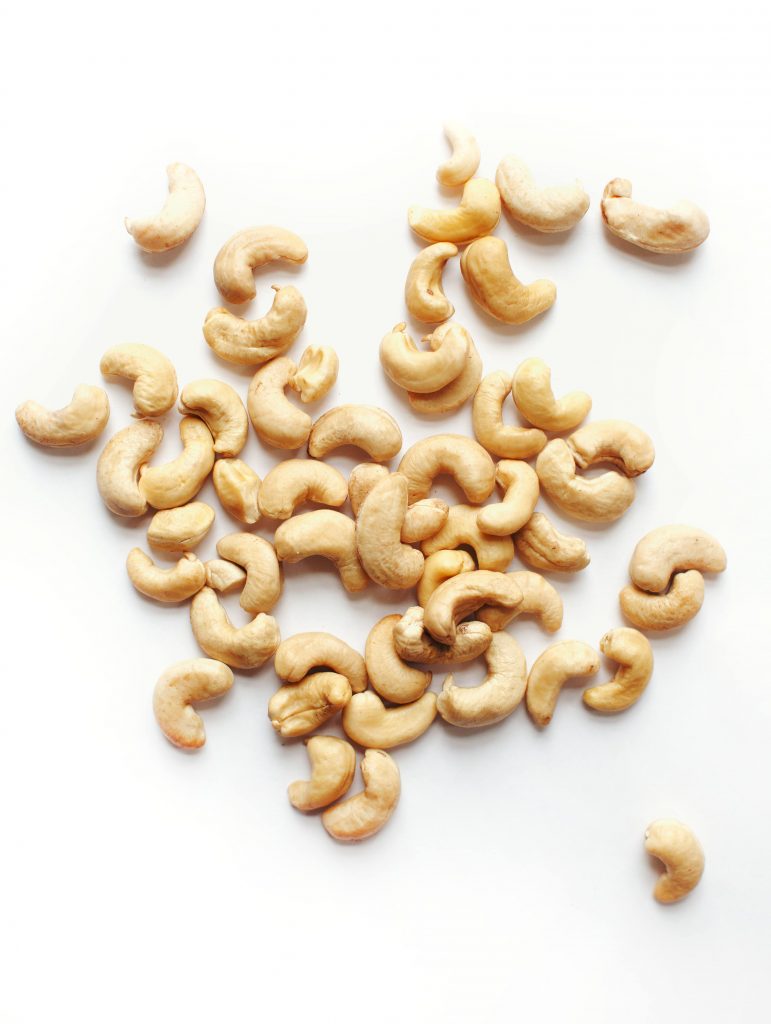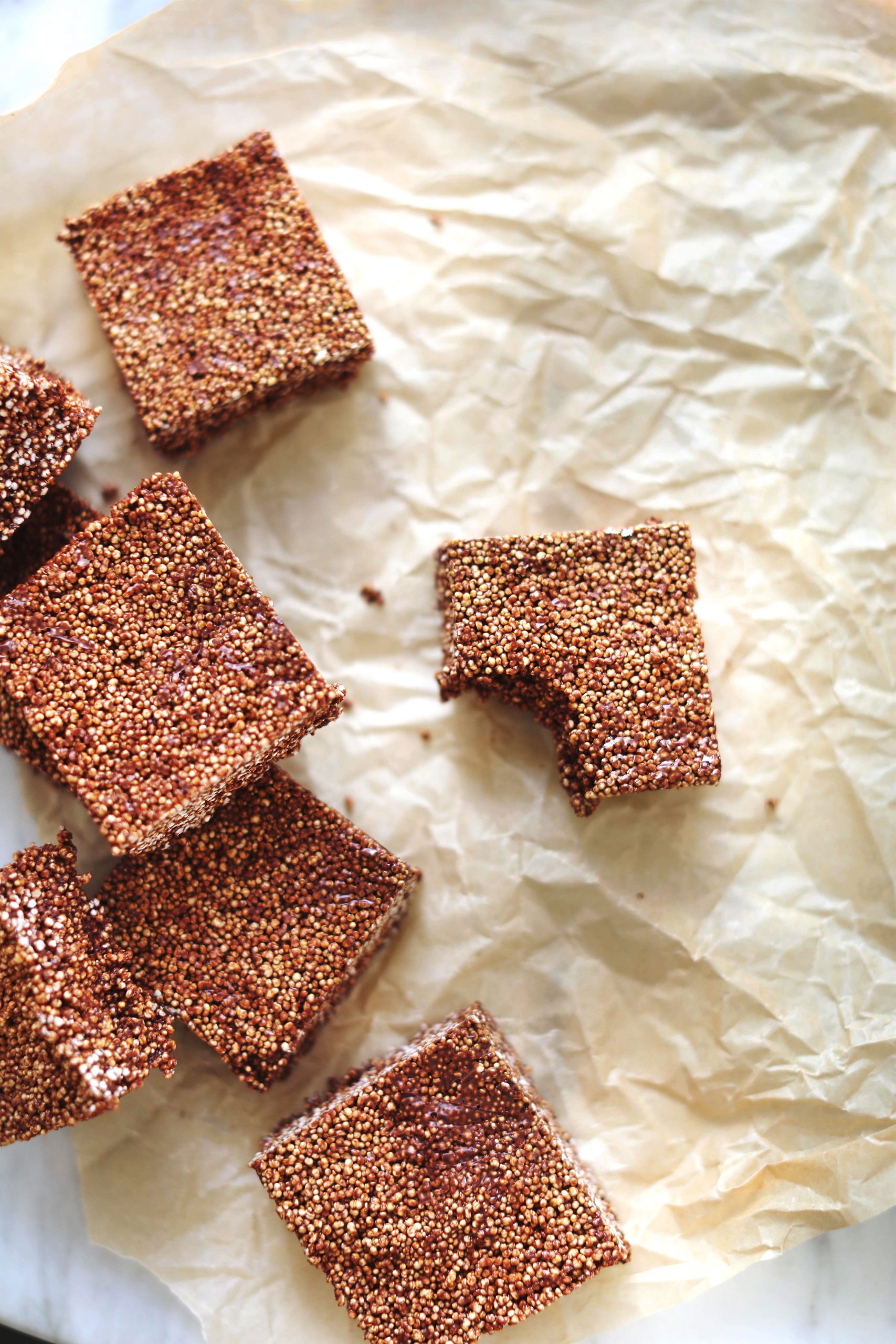Cashews are only commercially available shelled, so don’t bother looking for them in a husk or shell. Because steam and/or high heat is often used in shelling the nuts, it is very difficult to find truly “raw” cashews. There are a few producers that extract cashews from the kernel by hand without heat, so seek them out and ask for “truly raw cashews”, mostly available online. Cashews are phenomenal in raw desserts, as they can be blended after soaking into a luxurious cream that mimics dairy.
- Cashews are high in protein, iron, potassium, and vitamin A.

About Nuts
Nuts are concentrated, high-energy foods that are always good to have on hand in your pantry. Nuts are typically great sources of vitamin E and plant-based essential fatty acids.
Nuts are healthiest consumed after they have been soaked for some hours to improve their digestibility and increase their nutritional value. Raw, unsprouted nuts can be difficult to digest.
Buying
It is best to buy nuts in the shell whenever possible, as this is their natural packaging. Stores this way they will keep for up to one year. To ensure quality, visit a shop you know has a high turnover to ensure freshness and taste the nuts before purchasing. Purchase organic whenever possible, as pesticides and toxins tend to accumulate in high fat food, such as nuts. Never buy roasted nuts, or those processed with oil, salt, sugar, or other additives. Roasted nuts contain rancid fats and are a source of harmful free radicals. Nuts should always be purchased raw and toasted at home if desired.
Storing
Store hulled nuts in glass containers in a dark, cool place – heat and light speed up oxidation. Hulled nuts will keep at room temperature for one to three months. The fridge is an idea place as it is both cold and dark; storing here will ensure freshness for up to six months. Do not store nuts in plastic.



